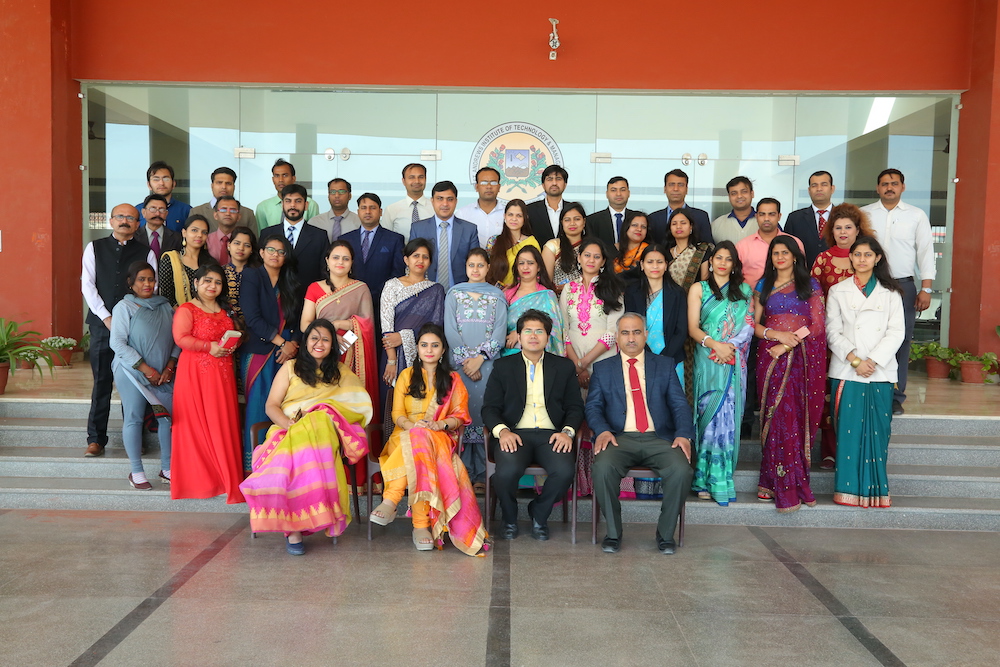Computer Science Engineering Subjects
Computer Science Engineering (CSE) encompasses a wide range of subjects that are crucial for developing the skills needed in the field of computing and technology.
Starting with the fundamentals, students learn about data structures and algorithms, which are essential for efficient problem-solving and software development.
Core subjects such as Operating Systems, Computer Networks, and Database Management Systems provide a deep understanding of how software interacts with hardware, manages data, and ensures effective communication across networks.
Advanced topics like Artificial Intelligence and Machine Learning introduce students to the cutting-edge of tech, where they learn to create systems that can think, learn, and make decisions.
Additionally, practical skills are honed through subjects like Software Engineering and Web Technologies, where students undertake projects that simulate real-world software development scenarios.
Electives in Computer Science Engineering subjects such as Cloud Computing, Internet of Things, and Information Security enable students to specialize further and stay updated with emerging trends and technologies. The curriculum is structured to establish a robust theoretical foundation while focusing on practical skills and innovation.
Some of the most opted courses in India and St. Andrews college or different Engineering college or Management colleges are as follows:-
Computer Science Engineering Overview

Computer Science Engineering (CSE) is a discipline that combines principles of computer science and electrical engineering to develop and innovate computing system, software, and applications.
It is a rapidly evolving field that plays a critical role in various industries, from information technology and telecommunications to healthcare and finance. This overview covers the core aspects of a typical Computer Science Engineering curriculum, key subjects, practical components, and career opportunities.
Core Aspects of Computer Science Engineering Curriculum
The Computer Science Engineering curriculum is crafted to deliver a solid grounding in both theoretical concepts and practical skills, beginning with introductory courses and advancing to more complex topics. It features a blend of mandatory core Computer Science Engineering subjects and elective specializations. This curriculum is aimed at equipping students with problem-solving abilities, programming expertise, and a deep understanding of computer system architectures and functionalities.
Key Subjects
Introduction to Computer Programming: This foundational course introduces students to basic computer programming concepts, syntax, and logic, often using languages like Python, C, or Java.
Data Structures and Algorithms: This subject focuses on organizing and manipulating data efficiently using structures like arrays, linked lists, trees, and graphs, along with algorithmic techniques for sorting, searching, and optimization.
Computer Organization and Architecture: Students learn about the hardware components of computers, CPU design, memory hierarchy, assembly language, and the interplay between hardware and software.
Operating Systems: This course covers the essential principles of operating systems, encompassing process management, memory management, file systems, and security mechanisms.
Database Management Systems: Students are introduced to database design, SQL (Structured Query Language), transaction management, and database architecture, essential for managing and retrieving data efficiently.
Computer Networks: This subject deals with networking principles, protocols, network architectures, and data communication, crucial for understanding how computers interact over networks.
Software Engineering: Focusing on the software development life cycle, design patterns, Agile methodologies, and project management, this course emphasizes the creation of reliable and maintainable software.
Theory of Computation: Covering automata theory, formal languages, Turing machines, and computational complexity, this subject provides the theoretical foundation for understanding what can be computed.
Discrete Mathematics: Key topics include logic, set theory, combinatorics, graph theory, and probability, which are fundamental for various areas in computer science.
Web Technologies: Students learn about web development using HTML, CSS, JavaScript, and various frameworks, preparing them to build and deploy web applications.
Importance of Computer Engineering in Today’s World

Computer Science Engineering (CSE) plays a critical role in today’s world across various domains, reflecting its importance and widespread impact.
Here are several key areas highlighting its significance:
Technological Advancements
Innovation and Development: Computer Science Engineering drives innovation in technology, leading to the development of new hardware, software, and algorithms that transform industries and everyday life.
Automation and Efficiency: Automation of processes through software development and AI improves efficiency and reduces human error in various sectors such as manufacturing, healthcare, and finance.
Economic Impact
Job Creation: The tech industry is a major source of employment, offering a wide range of job opportunities from software development to cybersecurity.
Startups and Entrepreneurship: The field encourages entrepreneurship, leading to the creation of startups that contribute to economic growth and innovation.
Healthcare
Medical Research: Computer Science Engineering enables advanced research in genomics, bioinformatics, and personalized medicine.
Healthcare Management: Electronic health records, telemedicine, and health information systems improve patient care and streamline healthcare services.
Education
E-Learning Platforms: Computer Science Engineering powers online learning platforms, making education accessible to a global audience.
Educational Tools: Development of educational software and interactive learning tools enhances the teaching and learning experience.
Communication
Global Connectivity: Internet and communication technologies, underpinned by Computer Science Engineering, connect people worldwide, facilitating instant communication and information exchange.
Social Media: Platforms like Facebook, Twitter, and Instagram rely on Computer Science Engineering to operate and continually evolve.
Security
Cybersecurity: Protecting data and systems from cyber threats is crucial in an increasingly digital world. Computer Science Engineering professionals develop and maintain security protocols to safeguard information.
Cryptography: Secure communication and transactions rely on cryptographic techniques designed and implemented by computer scientists.
Entertainment
Gaming Industry: Video games and virtual reality experiences are developed using advanced computer science techniques.
Media and Content Creation: Computer Science Engineering aids in the creation, distribution, and consumption of digital content such as movies, music, and books.
Data Management and Analysis
Big Data: Computer Science Engineering enables the handling and analysis of large datasets, providing insights that drive decision-making in businesses, science, and government.
Artificial Intelligence: AI and machine learning algorithms are developed and refined within the field of computer science, leading to intelligent systems that can predict, learn, and adapt.
Environmental Sustainability
Smart Technologies: Development of smart grids, IoT devices, and other technologies help monitor and reduce environmental impact.
Climate Modeling: Computer simulations and models are essential for understanding climate change and developing mitigation strategies.
Research and Development
Interdisciplinary Applications: Computer Science Engineering intersects with various fields such as biology, physics, and social sciences, leading to interdisciplinary research and novel solutions to complex problems.
Innovation Hubs: Universities and research institutions rely heavily on computer science for cutting-edge research and development.
Importance of Computer Programming in Computer Science Engineering

Here are few points for importance computer programming in Computer Science Engineering:
Fundamental Skill for Computer Science Engineering:
Core Competency: Programming is a foundational skill in Computer Science Engineering, essential for understanding and implementing computer science principles.
Problem-Solving: It develops analytical and problem-solving skills, enabling engineers to design algorithms and solve computational problems effectively.
Development of Software and Applications:
Software Creation: Programming is the basis for developing a wide range of software, from simple applications to complex operating systems.
Web Development: Programming languages such as HTML, CSS, JavaScript, and backend languages are critical for creating and maintaining websites and web applications.
Mobile Apps: Knowledge of languages like Swift, Java, and Kotlin is essential for developing mobile applications for iOS and Android platforms.
Automation and Efficiency:
Task Automation: Programming enables the automation of repetitive tasks, increasing efficiency and reducing human error.
Process Optimization: Through coding, processes can be streamlined and optimized, leading to better performance and lower operational costs.
Innovation and Creativity:
New Solutions: Programming allows engineers to create innovative solutions and applications tailored to specific problems or user needs.
Customization: It provides the ability to customize software and systems to meet unique requirements and preferences.
Interdisciplinary Applications:
Cross-Disciplinary Use: Programming skills are valuable in various disciplines, including bioinformatics, finance, and digital humanities, enhancing research and development in these fields.
Collaboration: Programming facilitates collaboration across different fields, driving interdisciplinary projects and fostering innovation.
Enabling Advanced Technologies:
Artificial Intelligence (AI) and Machine Learning (ML): Programming is crucial for developing AI and ML algorithms, which are transforming industries and driving advancements in technology.
Data Science: It is essential for data analysis, visualization, and the development of models that extract insights from large datasets.
Cybersecurity: Programming skills are necessary for developing security protocols and systems to protect data and networks.
Future-Proof Career:
High Demand: Programming skills are in high demand in the job market, making them essential for a successful career in tech.
Adaptability: The rapidly evolving nature of programming languages and technologies ensures continuous learning and adaptation, keeping professionals relevant and competitive.
Enhancing Research and Development:
Scientific Research: Programming enables the creation of simulations and models that are crucial for scientific research and experimentation.
Technological Advancements: It drives technological advancements by providing the tools needed to develop and test new theories and concepts.
Computer Science Engineering Core Subjects

Computer Engineering encompasses a wide range of core subjects that provide students with a comprehensive understanding of theoretical concepts and practical applications in the field of computer science.
Here’s a detailed explanation of some key core subjects typically included in CSE programs:
Programming Languages:
Purpose: Fundamental to CSE, programming languages teach students how to write, debug, and optimize code.
Topics Covered: Syntax, semantics, data types, control structures, functions, object-oriented programming principles.
Examples: C, C++, Java, Python, JavaScript, Ruby, Swift.
Data Structures and Algorithms:
Purpose: Focuses on organizing, storing, and accessing data efficiently, coupled with algorithm design and analysis for problem-solving.
Topics Covered: Arrays, linked lists, stacks, queues, trees, graphs, sorting algorithms, searching algorithms, complexity analysis.
Importance: Essential for designing efficient software solutions and understanding computational complexity.
Computer Architecture:
Purpose: Studies the design and organization of computer systems, including CPU, memory, input-output systems, and interconnections.
Topics Covered: Processor design, memory hierarchy, instruction set architecture, parallel processing, performance evaluation.
Importance: Provides insights into hardware-software interaction and system performance optimization.
Operating Systems:
Purpose: Examines the principles and functionalities of operating systems that manage hardware resources and provide services to software.
Topics Covered: Process management, memory management, file systems, device management, security, virtualization.
Importance: Crucial for understanding how software interacts with hardware and managing system resources efficiently.
Database Management Systems (DBMS):
Purpose: Focuses on the theory and practice of designing, implementing, and managing databases.
Topics Covered: Data modeling, relational databases, SQL, normalization, transaction management, concurrency control, NoSQL databases.
Importance: Essential for developing and maintaining scalable and efficient data storage solutions.
Software Engineering:
Purpose: Covers methodologies and practices for systematic software development, from requirements analysis to maintenance.
Topics Covered: Software development life cycle (SDLC), requirements engineering, design patterns, testing, quality assurance, project management.
Importance: Emphasizes disciplined and structured approaches to building reliable and maintainable software systems.
Computer Networks:
Purpose: Studies the principles and protocols governing communication between computer systems and networks.
Topics Covered: Network architecture, protocols (TCP/IP, HTTP, FTP), routing, switching, wireless networks, network security.
Importance: Critical for understanding internet technologies, network design, and ensuring secure and efficient data transmission.
Artificial Intelligence (AI) and Machine Learning (ML):
Purpose: Explores techniques for creating intelligent systems that can learn from data and make decisions.
Topics Covered: Machine learning algorithms (supervised, unsupervised, reinforcement learning), neural networks, natural language processing (NLP), computer vision.
Importance: Drives innovation in areas like autonomous systems, data analysis, and pattern recognition.
Theory of Computation:
Purpose: Investigates the theoretical foundations of computation, defining what can be computed and how efficiently.
Topics Covered: Automata theory, formal languages, computability, complexity theory, Turing machines.
Importance: Provides a theoretical basis for understanding the capabilities and limitations of computational systems.
Cybersecurity:
Purpose: Focuses on protecting computer systems, networks, and data from unauthorized access, attacks, and vulnerabilities.
Topics Covered: Cryptography, network security principles, access control, threat detection and mitigation, ethical hacking.
Importance: Critical for safeguarding information assets and ensuring secure computing environments.
Advanced Computer Science Engineering Subjects

Advanced Computer Science Engineering subjects build upon foundational knowledge and delve deeper into specialized areas, preparing students for advanced research, specialized careers, and emerging technologies.
Here are some advanced subjects typically offered in Computer Engineering programs:
Advanced Algorithms and Data Structures:
Purpose: Explores advanced algorithms for optimization, approximation, and complex data structures for efficient data management.
Topics: Graph algorithms, advanced sorting techniques, dynamic programming, geometric algorithms, advanced data structures like Fenwick trees, segment trees.
Advanced Operating Systems:
Purpose: Focuses on advanced concepts in operating systems design, implementation, and optimization for performance and reliability.
Topics: Distributed systems, real-time operating systems, virtualization, advanced memory management techniques, fault tolerance.
Distributed Systems:
Purpose: Examines principles and techniques for designing and managing distributed computing system.
Topics: Distributed algorithms, consensus protocols, fault tolerance, distributed storage systems, cloud computing architectures.
Computer Vision:
Purpose: Covers techniques for enabling computers to interpret visual information from the real world.
Topics: Image processing, feature extraction, object detection and recognition, 3D reconstruction, deep learning for computer vision.
Natural Language Processing (NLP):
Purpose: Focuses on enabling computers to understand, interpret, and generate human language.
Topics: Text processing, sentiment analysis, machine translation, language modeling, NLP applications like chatbots and information retrieval.
High-Performance Computing:
Purpose: Studies techniques for designing and optimizing systems to handle large-scale computations and data-intensive applications.
Topics: Parallel computing architectures, GPU computing, distributed computing frameworks (e.g., Hadoop, Spark), performance optimization.
Machine Learning and AI Applications:
Purpose: Explores advanced machine learning techniques and their applications in various domains.
Topics: Reinforcement learning, deep learning architectures (CNNs, RNNs, GANs), advanced AI applications in robotics, healthcare, finance.
Cyber-Physical Systems:
Purpose: Integrates computing with physical processes to monitor and control interconnected systems.
Topics: Embedded systems, IoT architectures, real-time systems, sensor networks, security and privacy issues in CPS.
Big Data Analytics:
Purpose: Focuses on techniques for processing, analyzing, and deriving insights from large volumes of data.
Topics: Data mining, scalable data storage and retrieval, stream processing, big data frameworks (e.g., Hadoop, Spark), data visualization.
Quantum Computing:
Purpose: Introduces the principles and applications of quantum computing, a rapidly evolving field.
Topics: Quantum algorithms, quantum gates and circuits, quantum cryptography, potential applications in cryptography, optimization, and simulation.
Computer Graphics and Visualization:
Purpose: Explores techniques for generating and manipulating visual content on computers.
Topics: Rendering algorithms, GPU programming, virtual reality (VR) and augmented reality (AR), scientific visualization.
Robotics and Autonomous Systems:
Purpose: Studies the design, control, and applications of robotic systems and autonomous agents.
Topics: Robot kinematics and dynamics, motion planning, sensor fusion, human-robot interaction, AI for robotics.
Blockchain Technology:
Purpose: Examines decentralized ledger technologies and their applications beyond cryptocurrencies.
Topics: Consensus algorithms, smart contracts, blockchain scalability, privacy and security, blockchain applications in supply chain, finance, and healthcare.
Bioinformatics:
Purpose: Applies computational techniques to analyze biological data, including genomics, proteomics, and molecular interactions.
Topics: Sequence alignment, genomic databases, protein structure prediction, computational drug design, personalized medicine.
Ethical Hacking and Cybersecurity:
Purpose: Focuses on offensive and defensive strategies to protect computer systems and networks from cyber threats.
Topics: Penetration testing, vulnerability assessment, incident response, cybersecurity laws and ethics, secure coding practices.
Specializations in Computer Science Engineering

Computer Science Engineering (CSE) Specialisations allow students to focus their studies on specific domains within the broader field of computer science, aligning their education with their career interests and aspirations.
These Specializations provide in-depth knowledge, skills, and practical experience in areas that are essential for various industries and cutting-edge technologies.
This comprehensive guide explores several key specializations in Computer Science Engineering, detailing their importance, core topics, career prospects, and relevance in today’s digital world.
Introduction to Specializations in Computer Science Engineering
Computer Science Engineering is a diverse discipline that encompasses a wide range of specializations, each addressing specific aspects of computing and technology.
As technology continues to advance rapidly, the demand for specialized skills in areas such as artificial intelligence, cybersecurity, data science, and software engineering is increasing. Specializations allow students to deepen their expertise in a particular field, preparing them for specialized roles in industry, research, and academia.
Importance of Specializations in Computer Science Engineering
Specializations play a crucial role in the education and career path of CSE students by:
Tailoring Education to Career Goals: Specializations enable students to focus on areas of interest that align with their career aspirations, whether in software development, cybersecurity, data analytics, or emerging technologies like blockchain and quantum computing.
Meeting Industry Demands: Industries increasingly seek professionals with specialized knowledge and skills to tackle specific challenges and innovate in their respective domains. Specializations prepare students to meet these demands effectively.
Enhancing Employability: Graduates with specialized skills are highly sought after by employers looking for expertise in niche areas. Specializations provide a competitive edge in the job market.
Promoting Innovation: Specialized knowledge fosters innovation by equipping students with advanced techniques and tools needed to solve complex problems and develop cutting-edge technologies.
Supporting Research and Development: Specializations in research-oriented fields like artificial intelligence, robotics, and bioinformatics contribute to advancements in technology and scientific discovery.
Key Specializations in Computer Science Engineering
Artificial Intelligence (AI) and Machine Learning
Overview: AI and Machine Learning involve creating systems that can learn from data and make decisions autonomously, mimicking human intelligence.
Core Topics:
Machine Learning Algorithms (supervised, unsupervised, reinforcement learning)
Neural Networks and Deep Learning
Natural Language Processing (NLP) and Language Understanding
Computer Vision and Image Recognition
AI Ethics and Responsible AI
Career Opportunities: AI Engineer, Machine Learning Engineer, Data Scientist, NLP Specialist, Robotics Engineer, AI Researcher
Relevance: AI is transforming industries such as healthcare, finance, autonomous vehicles, and personalized recommendations, driving innovation and efficiency.
Cybersecurity
Overview: Cybersecurity focuses on protecting computer systems, networks, and data from unauthorized access, attacks, and vulnerabilities.
Core Topics:
Cryptography and Cryptanalysis
Network Security Protocols and Technologies
Cyber Threat Intelligence and Analysis
Incident Response and Forensics
Secure Software Development Practices
Career Opportunities: Cybersecurity Analyst, Information Security Engineer, Penetration Tester, Security Consultant, Chief Information Security Officer (CISO)
Relevance: With the rise in cyber threats and data breaches, cybersecurity is critical for protecting sensitive information and maintaining trust in digital systems.
Data Science and Big Data Analytics
Overview: Data Science involves extracting insights and knowledge from large volumes of structured and unstructured data using statistical and computational methods.
Core Topics:
Data Mining and Machine Learning for Data Analysis
Big Data Technologies (Hadoop, Spark)
Data Visualization and Interpretation
Predictive Analytics and Modeling
Data Ethics and Privacy
Career Opportunities: Data Scientist, Data Analyst, Business Intelligence Analyst, Big Data Engineer, Quantitative Analyst
Relevance: Data-driven decision-making is essential across industries, driving business strategies, personalized services, and operational efficiencies.
Software Engineering
Overview: Software Engineering focuses on systematic approaches to developing, testing, and maintaining software systems.
Core Topics:
Software Development Life Cycle (SDLC) Models
Requirements Engineering and Management
Design Patterns and Software Architecture
Agile Development Methodologies
Software Testing and Quality Assurance
Career Opportunities: Software Engineer, Software Architect, DevOps Engineer, Technical Lead, Project Manager
Relevance: Software powers everything from mobile apps to enterprise systems, emphasizing the need for robust, scalable, and maintainable software solutions.
Blockchain Technology
Overview: Blockchain is a decentralized ledger technology that securely records transactions across multiple computers.
Core Topics:
Cryptography and Digital Signatures
Blockchain Consensus Mechanisms (Proof of Work, Proof of Stake)
Smart Contracts and Decentralized Applications (DApps)
Blockchain Scalability and Interoperability
Blockchain Use Cases (Finance, Supply Chain, Healthcare)
Career Opportunities: Blockchain Developer, Blockchain Consultant, Smart Contract Developer, Blockchain Analyst, Cryptocurrency Specialist
Relevance: Blockchain is revolutionizing industries by enhancing transparency, security, and efficiency in transactions and data management.
Cloud Computing
Overview: Cloud Computing involves delivering computing services (servers, storage, databases, networking, software) over the internet.
Core Topics:
Cloud Deployment Models (Public, Private, Hybrid)
Virtualization and Containerization (e.g., Docker, Kubernetes)
Cloud Security and Compliance
Serverless Computing and Microservices
Cloud Migration and Optimization Strategies
Career Opportunities: Cloud Engineer, Cloud Architect, DevOps Engineer, Solutions Architect, Cloud Consultant
Relevance: Cloud computing enables scalability, flexibility, and cost-efficiency for businesses, supporting digital transformation and innovation.
Internet of Things (IoT)
Overview: IoT involves connecting physical devices embedded with sensors, software, and connectivity to exchange data over the internet.
Core Topics:
IoT Architecture and Protocols (MQTT, CoAP)
Sensor Networks and Edge Computing
IoT Security and Privacy
Data Analytics and Machine Learning for IoT
IoT Applications (Smart Cities, Healthcare, Agriculture)
Career Opportunities: IoT Developer, IoT Solutions Architect, Embedded Systems Engineer, IoT Security Specialist, IoT Consultant
Relevance: IoT is driving advancements in automation, smart environments, and real-time data analytics, transforming industries and enhancing quality of life.
Computer Vision and Robotics
Overview: Computer Vision involves enabling computers to interpret visual information from the real world, while Robotics focuses on designing, building, and programming robots.
Core Topics:
Image Processing and Pattern Recognition
Robot Kinematics and Dynamics
Sensor Fusion and Localization
Human-Robot Interaction
AI for Robotics and Autonomous Systems
Career Opportunities: Computer Vision Engineer, Robotics Engineer, Autonomous Vehicle Engineer, AI Researcher, Robotics Software Developer
Relevance: Applications include autonomous vehicles, medical imaging, surveillance systems, and industrial automation, advancing human-machine interaction and automation capabilities.
Bioinformatics
Overview: Bioinformatics applies computational techniques to analyze biological data, including genomics, proteomics, and drug discovery.
Core Topics:
Sequence Analysis and Genome Assembly
Protein Structure Prediction and Molecular Modeling
Bioinformatics Databases and Tools
Computational Drug Design and Personalized Medicine
Ethical and Legal Issues in Bioinformatics
Career Opportunities: Bioinformatics Scientist, Computational Biologist, Genomics Analyst, Pharmaceutical Data Analyst, Bioinformatics Software Developer
Relevance: Bioinformatics accelerates biomedical research, personalized medicine, and agriculture by integrating biology, computer science, and statistics.
Semester-wise Syllabus for B Tech Computer Science Engineering

Creating a semester-wise syllabus for a B.Tech in Computer Science involves detailing the Computer Science Engineering subjects and topics covered over four years or eight semesters. Below is a comprehensive breakdown of a typical B.Tech CSE program, highlighting the core subjects and electives commonly included in each semester.
Semester-wise Syllabus for B.Tech Computer Science Engineering Students
First Year:
Semester 1:
Mathematics-I : Differential Calculus, Integral Calculus, Differential Equations
Physics: Mechanics, Thermodynamics, Optics
Chemistry: Atomic Structure, Chemical Bonding, Thermodynamics
Engineering Mechanics: Basics of Engineering Mechanics, Statics, Dynamics
Introduction to Programming: Fundamentals of Programming (in C or Python), Problem Solving Techniques
Engineering Graphics: Drawing Principles, Computer-Aided Design (CAD) Basics
Communication Skills: Technical Report Writing, Presentation Skills
Semester 2:
Mathematics-II: Vector Calculus, Complex Numbers, Probability and Statistics
Electrical Sciences: Basic Electrical Engineering, Circuit Analysis
Materials Science: Introduction to Materials, Properties of Materials
Introduction to Electronics: Basic Electronics, Semiconductor Devices
Data Structures: Arrays, Linked Lists, Stacks and Queues
Environmental Studies: Environmental Pollution, Sustainable Development
Workshop Practice: Basic Workshop Tools and Techniques
Second Year:
Semester 3:
Mathematics-III: Numerical Methods, Discrete Mathematics
Digital Logic Design: Boolean Algebra, Logic Gates, Combinational and Sequential Circuits
Computer Organization and Architecture: CPU Architecture, Memory Hierarchy, Input-Output Systems
Database Management Systems (DBMS): Relational Model, SQL Programming, Normalization
Object-Oriented Programming (OOP): Principles of OOP, Java or C++ Programming
Software Engineering Fundamentals: SDLC Models, Requirements Engineering
Semester 4:
Mathematics-IV: Graph Theory, Numerical Analysis
Operating Systems: Process Management, Memory Management, File Systems
Computer Networks: Network Fundamentals, TCP/IP Protocol Suite, Network Security
Web Technologies: HTML, CSS, JavaScript, Server-side Scripting (PHP, Node.js)
Algorithms: Analysis of Algorithms, Sorting and Searching Techniques
Professional Ethics and Human Values: Ethical Issues in Computing, Case Studies
Third Year:
Semester 5:
Compiler Design: Compiler Structure, Lexical Analysis, Syntax Analysis
Artificial Intelligence: Machine Learning Basics, Neural Networks, Natural Language Processing
Software Testing and Quality Assurance: Testing Techniques, Quality Metrics
Elective-I
Example: Cloud Computer, Big Data Analytics, IoT, etc.
Minor Project
Semester 6:
Cybersecurity: Cryptography, Network Security, Ethical Hacking
Data Science: Data Mining, Big Data Technologies (Hadoop, Spark), Data Visualization
Elective-II
Example: Blockchain Technology, Robotics, Bioinformatics, etc.
Major Project Phase-I
Fourth Year:
Semester 7:
Internet of Things (IoT): IoT Architecture, Sensor Networks, IoT Applications
Machine Learning: Advanced ML Algorithms, Deep Learning
Elective-III
Example: Quantum Computing, Computer Vision, Advanced Databases, etc.
Seminar
Major Project Phase-II
Semester 8:
Project Work
Implementation and Documentation of Major Project
Industrial Training
Internship in Industry or Research Organization
Curriculum of Computer Science Engineering for UG and PG

The curriculum for Computer Science Engineering (CSE) subjects differs between undergraduate (UG) and postgraduate (PG) programs, with each level providing a unique focus and depth of study in the field.
Here’s a comprehensive overview of the typical curriculum for both UG and PG programs in Computer Science Engineering:
Undergraduate (B.Tech/B.E) Curriculum:
First Year:
Mathematics-I
Differential Calculus
Integral Calculus
Differential Equations
Physics
Mechanics
Thermodynamics
Optics
Chemistry
Atomic Structure
Chemical Bonding
Thermodynamics
Engineering Graphics
Engineering Drawing
CAD Basics
Basic Electrical Engineering
Fundamentals of Electrical Circuits
Electrical Machines
Programming in C/Python
Basics of Programming
Problem Solving Techniques
Communication Skills
Technical Communication
Presentation Skills
Second Year:
Mathematics-II
Vector Calculus
Complex Analysis
Probability and Statistics
Digital Logic Design
Boolean Algebra
Logic Gates
Combinational and Sequential Circuits
Computer Organization and Architecture
CPU Architecture
Memory Hierarchy
I/O Systems
Database Management Systems (DBMS)
Relational Model
SQL Programming
Normalization
Operating Systems
Process Management
Memory Management
File Systems
Data Structures and Algorithms
Arrays, Linked Lists, Stacks, Queues
Trees, Graphs
Sorting and Searching Algorithms
Object-Oriented Programming (OOP)
Principles of OOP
Java or C++ Programming
Third Year:
Software Engineering
Software Development Life Cycle (SDLC)
Requirements Engineering
Software Testing and Quality Assurance
Computer Networks
Network Fundamentals
TCP/IP Protocol Suite
Network Security
Web Technologies
HTML, CSS, JavaScript
Server-side Scripting (PHP, Node.js)
Web Security
Artificial Intelligence and Machine Learning
Machine Learning Algorithms
Neural Networks
Natural Language Processing (NLP)
Cybersecurity
Cryptography
Network Security
Ethical Hacking
Elective Courses
Big Data Analytics
IoT
Mobile App Development
Fourth Year:
Elective Courses
Blockchain Technology
Robotics
Bioinformatics
Human-Computer Interaction
Major Project
Research-oriented project in a specialized area
Implementation, documentation, and presentation
Internship/Industrial Training
Practical experience in industry or research organization
Application of theoretical knowledge in real-world scenarios
Comprehensive Viva
Postgraduate (M.Tech/M.E) Curriculum:
The postgraduate curriculum in Computer Science Engineering typically builds upon the foundational knowledge acquired at the undergraduate level and offers more specialized and advanced courses.
It includes:
Advanced Topics in Algorithms and Data Structures
Modern algorithms for optimization, approximation, and complexity analysis
Higher level data structures and their applications
Advanced Computer Architecture and Parallel Processing
Higher level concepts in CPU architecture, memory hierarchy, and parallel computing
GPU architecture and programming
Advanced Topics in Operating Systems
Distributed systems and real-time operating systems
Virtualization and containerization technologies
Advanced Database Management Systems
Advanced topics in relational databases, NoSQL databases
Big data storage and processing frameworks
Advanced Topics in Machine Learning and Artificial Intelligence
Deep learning architectures (CNNs, RNNs, GANs)
Reinforcement learning and advanced AI applications
Cybersecurity and Information Assurance
Advanced cryptography and cryptanalysis
Cybersecurity management and risk assessment
Cloud Computing and Virtualization
Cloud infrastructure design and management
Serverless computing and microservices architecture
Research Methodology and Thesis Work
Literature review, research proposal writing
Thesis work under the guidance of a faculty advisor
Elective Courses
Specialized electives based on research interests and career goals
Topics may include bioinformatics, quantum computing, computer vision, etc.
Seminar and Presentation
Presentation of research findings and participation in seminars
Discussion of latest advancements and research trends in CSE
Top Government Colleges for Computer Science Engineering

Here are some of the top government Computer Science colleges in India:
Indian Institutes of Technology (IITs)
National Institutes of Technology (NITs)
Indian Institutes of Information Technology (IIITs)
Other Government Colleges:
Delhi Technological University (DTU), Delhi
St. Andrews Institute of Technology & Management, Delhi NCR
Netaji Subhas University of Technology (NSUT), Delhi
College of Engineering, Pune (COEP)
Birla Institute of Technology, Mesra
Top Private Colleges for Computer Science Engineering

Here are some of the top private Computer Science Engineering colleges in India:
Birla Institute of Technology and Science (BITS), Pilani:
Known for its excellent faculty, infrastructure, and placement opportunities.
St. Andrews Institute of Technology & Management, Delhi NCR
One of the prestigious colleges in India offers a number of UG and PG courses in the field of technology & management.
International Institute of Information Technology (IIIT), Hyderabad:
Renowned for its focus on research and industry collaboration.
Vellore Institute of Technology (VIT), Vellore:
Offers a strong curriculum and good placement opportunities.
PSG College of Technology, Coimbatore:
Well-regarded for its engineering programs and strong industry ties.
Thapar Institute of Engineering and Technology, Patiala:
Known for its academic excellence and placement records.
SASTRA University, Thanjavur:
Known for its strong academic programs and research opportunities.
Shiv Nadar University, Greater Noida:
Offers interdisciplinary programs and strong industry connections.
Job Opportunitites for Computer Science Engineers

Computer Science Engineering (CSE) offers a vast and dynamic career scope due to its pivotal role in shaping the digital age. Graduates in Computer Science Engineering are in high demand across various industries, given their expertise in designing, developing, and maintaining software systems, as well as their ability to solve complex problems using technology.
Here’s a detailed exploration of the career scope in Computer Science Engineering:
Software Development and Engineering
Software Engineer/Developer: Design, develop, test, and maintain computer software applications and systems across various platforms and programming languages.
Full Stack Developer: Proficient in both front-end (user interface) and back-end (server-side logic) development, capable of building entire web applications.
Mobile App Developer: Specialize in developing applications for mobile platforms (iOS, Android) using programming languages like Swift, Java, Kotlin, or React Native.
Artificial Intelligence and Machine Learning
Machine Learning Engineer: Design and implement machine learning algorithms and models to analyze and interpret large datasets, enabling automated decision-making systems.
AI Research Scientist: Conduct research to advance artificial intelligence, including areas like natural language processing, computer vision, and reinforcement learning.
Data Scientist: Extract, analyze, and interpret complex data to drive business decisions and predictions using statistical models and machine learning algorithms.
Cybersecurity
Cybersecurity Analyst/Engineer: Protect computer systems and networks from cyber threats, conduct vulnerability assessments, and implement security measures.
Ethical Hacker/Penetration Tester: Test and identify vulnerabilities in systems and networks through ethical hacking techniques to strengthen security defenses.
Security Consultant: Advise organizations on cybersecurity best practices, compliance requirements, and strategies to mitigate risks.
Cloud Computing
Cloud Architect: Design and oversee the implementation of cloud infrastructure, ensuring scalability, reliability, and security of cloud-based applications and services.
DevOps Engineer: Automate and streamline software development and operations processes, utilizing tools and practices for continuous integration and deployment in cloud environments.
Cloud Software Engineer: Develop applications optimized for cloud platforms, leveraging cloud-native technologies and services like AWS, Azure, or Google Cloud.
Data Science and Big Data Analytics
Data Analyst: Analyze and interpret data to extract valuable insights and trends, enabling data-driven decision-making across business domains.
Big Data Engineer: Design, build, and manage large-scale data processing systems using technologies like Hadoop, Spark, and Kafka to handle massive volumes of data.
Business Intelligence (BI) Developer: Create visualizations and dashboards to present data insights, enabling stakeholders to understand and act upon data-driven findings.
Internet of Things (IoT)
IoT Solutions Architect: Design and implement IoT systems and architectures, integrating sensors, devices, and networks to enable data collection and automation.
Embedded Systems Developer: Develop software and firmware for embedded devices and systems, enabling connectivity and functionality in IoT applications.
IoT Security Specialist: Ensure the security and privacy of IoT devices and networks, implementing protocols and measures to protect against cyber threats.
Software Quality Assurance and Testing
QA Engineer/Tester: Design and execute test plans, conduct automated and manual testing of software applications to ensure functionality, usability, and performance.
Test Automation Engineer: Develop automated testing scripts and frameworks to streamline testing processes and improve software quality and reliability.
Academic and Research Roles
Academic Researcher: Pursue research in computer science topics, publish papers, and contribute to advancements in theory and applications of computing.
Faculty/Professor: Teach and mentor students in academic institutions, conduct research, and contribute to the development of future generations of CSE professionals.
Salary Expected after Computer Science Engineering

In India, salaries for Computer Science Engineering (CSE) graduates can vary widely based on factors like location, company size, job role, and level of experience.
Here’s a general overview of salary expectations across different experience levels:
Entry-Level Positions (0-2 years of experience):
Software Developer/Engineer:
Entry-level salaries typically range from ₹3.5 lakhs to ₹6 lakhs per annum.
Startups may offer slightly lower salaries but could compensate with equity or other benefits.
System Analyst:
Salaries typically range from ₹3.2 lakhs to ₹5.5 lakhs per annum.
Data Analyst:
Entry-level positions may offer salaries ranging from ₹3.2 lakhs to ₹5.5 lakhs per annum.
Mid-Level Positions (2-5 years of experience):
Senior Software Engineer:
Salaries range from ₹6 lakhs to ₹12 lakhs per annum, depending on skills and location.
Software Development Manager:
Compensation typically ranges from ₹12 lakhs to ₹20 lakhs per annum or more in larger cities and tech hubs.
Data Scientist:
Salaries for mid-level positions can vary widely but generally range from ₹8 lakhs to ₹15 lakhs per annum.
Senior-Level Positions (5+ years of experience):
Technical Architect:
Salaries can range from ₹15 lakhs to ₹25 lakhs per annum or higher, depending on the company and location.
Engineering Manager:
Compensation typically starts from ₹20 lakhs and can go up to ₹40 lakhs per annum or more in top-tier companies.
Chief Technology Officer (CTO):
Salaries vary significantly but can exceed ₹50 lakhs per annum in leading tech companies and startups.
Factors Influencing Salary of Computer Science Engineer

The salary of a Computer Science Engineer (CSE) is influenced by several key factors, which collectively determine the earning potential and career progression in this field. Understanding these factors can help professionals make informed decisions about their career paths and opportunities.
Here are the primary factors influencing the salary of a Computer Science Engineer:
Location:
Cost of Living: Salaries tend to be higher in metropolitan cities and tech hubs where the cost of living is also higher. Cities like San Francisco, New York, London, and Bangalore typically offer higher salaries compared to smaller towns and rural areas.
Local Job Market: The demand for CSE professionals in a specific location impacts salary levels. Regions with a high concentration of tech companies and startups may offer more competitive salaries to attract and retain talent.
Experience:
Entry-Level vs. Senior-Level: Salary increases with years of experience and progressive career milestones. Entry-level positions generally offer lower salaries, which increase significantly as professionals gain expertise, leadership responsibilities, and specialized skills.
Skill Development: Continuous learning and acquiring new skills, such as in emerging technologies like AI, machine learning, blockchain, and cybersecurity, can accelerate salary growth and career advancement.
Education and Qualifications:
Degree Level: A bachelor’s degree in Computer Science Engineering (CSE) is typically the minimum requirement for entry into the field. Advanced degrees, such as a master’s or Ph.D., can lead to higher-paying roles, especially in research, academia, or specialized technical positions.
Certifications: Industry certifications from recognized organizations (e.g., AWS, Cisco, Microsoft) validate specialized skills and can enhance salary prospects. Certifications in areas like cloud computing, cybersecurity, and project management are particularly valuable.
Industry and Sector:
Tech Industry: Companies in software development, IT services, fintech, and e-commerce often offer competitive salaries to attract top talent due to their reliance on technology and innovation.
Non-Tech Sectors: Traditional industries like healthcare, finance, manufacturing, and retail are increasingly integrating technology solutions, leading to growing demand and competitive salaries for CSE professionals.
Company Size and Type:
Large Corporations: Established tech giants and multinational corporations (MNCs) typically offer higher salaries, comprehensive benefits packages, and opportunities for career growth and professional development.
Startups: While startups may offer lower base salaries, they often provide equity, stock options, and opportunities for rapid career progression, especially for early employees who contribute to the company’s growth and success.
Job Role and Responsibilities:
Specialization: Roles in specialized areas such as software engineering, data science, cybersecurity, cloud computing, and AI/machine learning often command higher salaries due to their technical complexity and critical importance to business operations.
Management and Leadership: Senior-level positions like engineering manager, technical architect, and chief technology officer (CTO) involve strategic leadership, decision-making, and overseeing complex projects, correlating with higher salaries and executive compensation packages.
Market Demand and Skills Shortages:
High-Demand Skills: Proficiency in in-demand programming languages (e.g., Python, Java, JavaScript), frameworks, and technologies relevant to current industry trends can increase salary offers due to skill shortages and competitive hiring markets.
Emerging Technologies: Expertise in emerging fields such as quantum computing, blockchain, augmented reality (AR), and Internet of Things (IoT) can position CSE professionals as sought-after specialists, commanding premium salaries in niche markets.
Professional Networking and Reputation:
Networking: Building a strong professional network, attending industry events, and participating in online communities can lead to job opportunities, referrals, and access to higher-paying roles through connections and recommendations.
Reputation and Portfolio: Demonstrating a track record of successful projects, contributions to open-source initiatives, and industry recognition through awards or publications can enhance credibility and negotiation power for salary discussions.
FAQs
What is Computer Science Engineering (CSE)?
Computer Science Engineering is a field that combines the principles of computer science and engineering to design and develop computer systems and software. It encompasses a range of Computer Science Engineering subjects, including algorithms, programming, data structures, artificial intelligence, and computer hardware.
What are the core computer science engineering syllabus?
The core syllabus for Computer Science Engineering subjects includes Programming Languages (C, C++, Java, Python), Data Structures and Algorithms, Computer Networks, Database Management Systems, Operating Systems, Software Engineering, Computer Architecture, Theory of Computation, and Web Technologies. These foundational topics comprehensively cover both the software and hardware aspects of computing.
Why are data structures and algorithms important?
Data structures and algorithms are essential because they provide efficient ways to store, organize, and manipulate data. Good understanding of these concepts helps in solving complex problems quickly and effectively.
What is the role of programming languages in CSE?
Programming languages are tools that allow developers to write instructions for computers to execute. They are fundamental in CSE as they are used to create software, develop algorithms, and perform various computing tasks.
What is the importance of studying computer networks?
Studying computer networks, a vital component of Computer Science Engineering subjects, is crucial for understanding how computers communicate. This knowledge is essential for developing and managing networks, ensuring data security, and optimizing network performance.
What is a database management system (DBMS)?
A DBMS is software that enables the creation, management, and manipulation of databases. It helps in storing, retrieving, and updating data efficiently, ensuring data integrity and security.
What do you learn in an operating systems course?
An operating systems course covers how an OS manages computer hardware and software resources, provides services to computer programs, and ensures efficient operation of the system. Topics include process management, memory management, and file systems.
What is software engineering?
Software engineering, a core part of Computer Science Engineering subjects, applies engineering principles to software development. This discipline involves systematic processes for designing, developing, testing, and maintaining software, ensuring it meets user requirements and is reliable, efficient, and maintainable.
Why is understanding computer architecture important?
Understanding computer architecture is important because it provides insight into how computers work at a fundamental level. It covers topics like CPU design, memory hierarchy, input/output mechanisms, and performance optimization.
What are electives in CSE, and why are they important?
Electives in Computer Science Engineering subjects offer students the opportunity to delve into specialized areas such as artificial intelligence, cybersecurity, machine learning, data science, and robotics. These optional subjects are crucial for helping students develop expertise in specific fields and tailor their education to align with their career aspirations.





